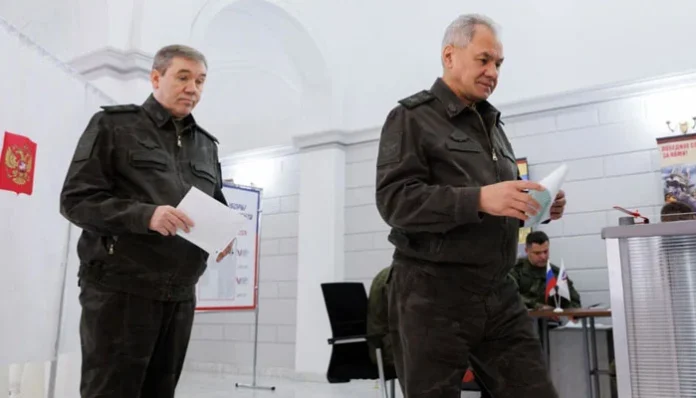The International Criminal Court (ICC) said Tuesday that it had issued arrest warrants against Russia’s top army chief and ex-defence minister over strikes on Ukrainian infrastructure that accounted for alleged war crimes.
The ICC warrants are the latest in a series of actions by the court over the Ukraine war, including an arrest warrant for Russian President Vladimir Putin.
The warrants, issued on Monday but made public on Tuesday, concerned the Chief of the General Staff Valery Gerasimov, and former defence minister Sergei Shoigu.
The two men are accused of the war crimes of directing attacks at civilian objects and causing excessive incidental harm to civilians, as well as the crime against humanity of “inhumane acts” in Ukraine, the ICC said in a statement.
ICC judges said there were “reasonable grounds to believe that the two suspects bear responsibility for missile strikes carried out by the Russian armed forces against the Ukrainian electric infrastructure from at least 10 October 2022 until at least 9 March 2023.”
The court said these strikes were “directed against civilian objects” and even when targets could be considered military, civilian damage “would have been clearly excessive to the anticipated military advantage.”
Ukraine hailed the “important” decision, with the the presidency’s chief of staff Andriy Yermak saying: “Everyone will be held accountable for evil.”
The ICC, based in The Hague, does not have its own police force for enforcing the arrest warrants. It relies on the justice systems of its 124 members to carry them out.
In theory, anyone under a warrant is prevented from travelling to an ICC member state for fear of arrest.
Putin himself has travelled abroad, notably to Kyrgyzstan, Saudi Arabia and the United Arab Emirates, which are not ICC member states.
However, he did skip a meeting of the BRICS (Brazil, Russia, India, China, South Africa) in South Africa, which would have been expected to carry out the warrant.
‘Historic first’
Moscow lashed out at the warrant against Putin, calling it “void” and issuing its own warrant against the ICC’s president in response.
Putin replaced Shoigu as defence minister last month in a major shake-up to Russia’s military leadership more than two years into its Ukraine offensive.
The 68-year-old was appointed Russian defence minister in 2012 and has had a decades-long political career of unmatched longevity in post-Soviet Russia.
He was named the new secretary of the Security Council, replacing his longstanding ally Nikolai Patrushev.
The Kremlin also said there were “no changes” envisaged to replace Gerasimov as Chief of the General Staff.
Along with Shoigu, Gerasimov had been targeted by a hardcore group of influential pro-offensive military bloggers for Moscow’s perceived military failures.
Observers believe he was closely involved in devising the plan to send troops to Ukraine in conditions of absolute secrecy.
After taking over in 2012, Gerasimov has been the longest-serving chief of the general staff of the post-Soviet era.
The ICC, created in 2002 to investigate war crimes around the world, in September opened a field office in Kyiv as part of efforts to hold Russian forces accountable for potential war crimes.
That move came after an international office to probe Russia for the war crime of aggression opened in The Hague in March 2023 in what Kyiv called a “historic” first step toward a tribunal for Moscow’s leadership.
Along with Putin, the ICC has also issued a warrant against Maria Lvova-Belova, Russia’s presidential commissioner for children’s rights, on similar charges of unlawful child deportations during the Ukraine war.
In March this year, the ICC issued warrants for two senior Russian officers, Sergei Ivanovich Kobylash and Viktor Nikolayevich Sokolov, over strikes on infrastructure in Ukraine.


